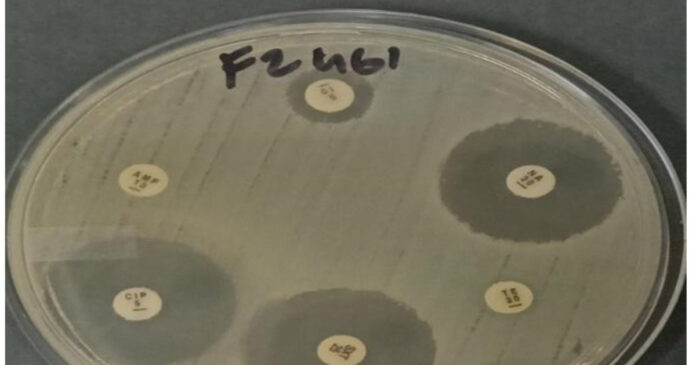Researchers from the University of the Philippines have developed artificial intelligence (AI) models that can predict antimicrobial resistance in Escherichia coli (E. coli), a common bacterium often used to detect fecal contamination.
The findings could lead to faster and more efficient methods for monitoring antibiotic resistance, particularly in agricultural settings where manure and wastewater are used.
E. coli frequently develops resistance to antibiotics, making it an ideal organism for studying antimicrobial resistance. Traditional laboratory methods for this analysis are often time-consuming and labor-intensive, making them impractical for large-scale monitoring. This has led researchers to explore faster approaches using whole-genome sequencing (WGS) and predictive modeling.
Marco Christopher Lopez and Dr. Pierangeli Vital of the University of the Philippines – Diliman College of Science’s Natural Sciences Research Institute (UPD-CS NSRI), along with Dr. Joseph Ryan Lansangan of the UPD School of Statistics, tested various AI prediction models. They used genetic data and laboratory test results from the National Center for Biotechnology Information (NCBI) database to determine the antimicrobial resistance of E. coli.
“We selected the models based on their strengths in handling biological and imbalanced dataThese models were chosen to compare performance across different learning strategies and to identify which is most suitable for predicting antibiotic resistance,” Dr. Vital said.
The AI models included Random Forest (RF), which is suited for high-dimensional data; Support Vector Machine (SVM), which excels in classification tasks; and two ensemble methods, Adaptive Boosting (AB) and Extreme Gradient Boosting (XGB), which enhance accuracy by focusing on hard-to-classify samples.









